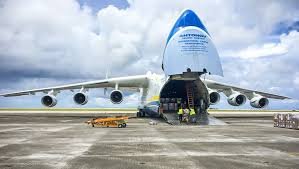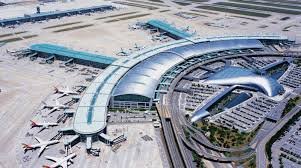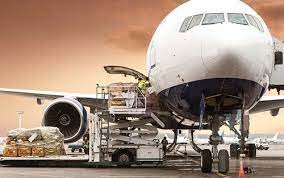With no sign of airlines reversing the trend to continue outsourcing cargo sales and increasingly other services, and with global air freight markets apparently picking up in the post-pandemic phase, the future looks relatively bright for GSAs – at least for those with the resources to invest in the information and communications technology that the business increasingly requires, and staff trained to effectively use it.
Ritika Arora Bhola
Over the last two decades, the role of many General Sales Agents (GSAs) has evolved far beyond just sales to the point where they act as the main cargo representative for the airline in a particular market, country, or region. The move towards GSAs offering additional services such as handling supervision led some years ago to the expansion of the term to General Sales and Services Agents (GSSAs), while some of the bigger international firms have taken the role even further.
It is estimated that around 25% of the air cargo industry’s US$50 billion annual revenue is raised via outsourced sales operations, which means third-party, so-called GSSAs, are responsible for generating around $12.5 billion of the industry’s annual income. Today, GSAs look set to increase their already substantial share of air cargo’s $50bn annual revenue base and further broaden their services.
Resourceful outsourcing
A GSSA has to cater to both sides with the right services: the clients of the airlines on one side and the airlines themselves on the other. Because of his understanding of the market it is the responsibility of the GSSA to evolve market strategies to promote sales and to achieve targets set by the airlines.
Business is also going well for ECS Group, a major global player with more than 20 years of expertise as an air cargo GSSA. “The most crucial and important aspect is to optimise customers’ revenue flow while representing an airline. We are able to do this. Thanks to our business organisation, our operational teams, our experts in revenue optimisation (pricing, sales monitoring, performance management, planning), and in process efficiency and innovation led by our digital specialists,” says Adrien Thominet, CEO, ECS Group. “This allows us to adopt a sales and marketing positioning that is tailored to suit each of our customers.”
According to Thominet, if an airline needs to delegate management of its operations and quality, safety and security tasks, ECS has a team of dedicated experts. They have all the necessary certification, are given regular training, and work with the latest technology. “Our one-of-a-kind in-house service is capable of managing every possible aspect, from audits, quality and safety management systems, laws and regulations to network operations aspects including ULD management, customs procedures, management of suppliers and contracts, handling, etc. These services, coupled with customised commercial planning services designed to support business activities allow us to optimise our customers’ revenue.”
Combining commercial planning (pricing and revenue management) with performance management (sales steering, load factor improvement and destination mix optimisation), these services reinforce ECS team’s field expertise to maximise revenue even further.
ECS Group manages approximately 900,000 tonnes of air cargo on behalf of airlines, representing an annual sales volume of over one billion euros. It offers a worldwide network of 137 offices across 47 countries, with over 1,000 staff working as a fully integrated organisation.
Namaste Airport Services (a subsidiary of Namaste Group- an established venture in the Indian aviation industry covering areas like cargo and courier services, logistics, warehousing, door-to-door service aircraft chartering, airport handling services) boasts a group of experienced professionals with expertise in various segments of the global aviation industry and who seeks to deliver exceptional value to its customers through a focus on innovation, professionalism and integrity.
“We ensure to provide our principal airlines the best services in the air cargo market with complete honesty and transparency whilst fully maintaining the airline’s own identity and propositions,” says Aviraj Rathi, Director at Namaste Airport Services. “We also adhere to the highest standards of performance evaluation with reliable and measureable services backed with product knowledge, right contacts in the market enhancing business opportunities for the airline supporting growth and expansion with related additional coverage and increasing their footprint in the country, as well as efficiently managing our customers and freight forwarders with the best service offerings.”
Established in 1975, Global Aviation Services has 40 offices in 16 prime locations in India. The company currently represents 13 international airlines as its passenger and/or cargo GSSA in India or part thereof. Global Aviation Services was the first Indian company to be accredited as GSSA by the International Air Transport Association (IATA) and today counts among the top 3 GSSA organisations in India.
Dipen Lalsodagar, Deputy Director- Cargo Sales at Global Aviation Services says, “As sales agents, we strongly believe that when an airline grows, we grow. The important thing is to keep the airline abreast with the current market scenario. The GSSA also has to be futuristic as market is dynamic and it keeps changing rapidly.”
According to Lalsodagar, today, the sales technique has moved from per kg space sale to a complete end-to-end logistics, where stakeholders act as parties to sell airline space. “Block space agreement or lane space agreement are the new tools we offer to our principals. As a service agent, we offer a warehouse management solution for smooth flight operations. On accounting front, we take care of their local taxation, vendor payments, cargo sales reports, etc. All in all, it’s a complete solution an airline can expect from us.”
Formed in 2013, New Delhi-based Zeal Global Group has been relentless in taking actions by introducing innovative methods and ideas in the industry. The company is handling over 435 fights a month and has a worldwide network spread across 65 Countries with 10 offices in India and 5 located overseas. With global airline partnerships and alliances including Air Asia, Copa Airlines, Miat Mongolian Airlines, ASKY Airlines, Air Berlin, Iraqi Airways, Fits Air, Bringer Air Cargo, Arik Air and many more, Zeal Global is channelising the divide between international and domestic air cargo market by offering an exponential cargo capacity across 164 countries and bridging the information gap between all stakeholders.
“We gauge our airline’s needs and assess the local market situation on the basis of our research and groundwork. We accordingly synergise to create the best result for the airlines. This is what delights the customers,” says Vishal Sharma, Managing Director at Zeal Global.
Part of Sentro Group (a conglomerate comprising of multiple companies working in various sectors like aviation, aviation technology, tourism, and real-estate with presence across India, Russia, Uzbekistan and UAE), Beehive Logistics is the cargo GSSA for Uzbekistan Airways in India with services covering sales, marketing, and operations. With Indigo and Bluedart as interline partners, Beehive Logistics works closely with key pharma companies in India. In the first week of October itself, Beehive handled and delivered more than 136.078 tonnes of pharma supplies to many Central Asian countries.
Dr Naveen Rao, Chairman, Sentro Group says that there are various parameters the company follows. “The two most important aspects we take care of are: Financials– reduce costs and credits to increase profit margins, and Product Placement– market research, brand building, innovative creations as per partner specifications, and robust marketing to develop synergies to create better effects and results.”
India- a strong market
In the last few years, Indian aviation industry has seen GSSAs flourishing and performing outstandingly well and contributing in overall growth.
The sector presents huge opportunity for GSSAs to invest in the future, and compound the market share. And GSSAs follow important parameters to survive in the Indian market.
“GSSA’s are growing steadily as most airlines prefer to sell through a GSSA module in the Indian market, capitalising on local strengths of the GSSA team and their reach of the captive markets, agrees Rathi. “GSSA companies are managing each airline representation they hold independently thereby ensuring full promotion for each airline they represent on merit basis.”
The European market has largely consolidated, which is why ECS and every other GSSA are very bullish on Asia, specifically India, says Thominet. ECS is said to have already made few acquisitions in India.
“Across the world there has been significant need for air cargo business which relatively puts India to be considered as one of the global hub for manufacturing and pharma industry. GSSA plays a vital and larger role in facilitating this growth,” says Thominet. “If we look at the market statistics and data provided from various sources, more than majority of air cargo volumes are sold by GSSAs alone which itself speaks its potential to deliver the quality of service and need of the moment specially airlines with direct/own operations. In times to come, the need of GSSA is going to further increase, since this outsourcing mechanism will work best for the airlines which will allow them to control their cost at the same time maintain their service levels.”
According to Thominet, every airline wants to replace the old way of working and ECS group has invested massively in the field of digitisation, process efficiency and performance management. “We have delivered the digital solutions and training infrastructure to our partner and principal carriers’ which not only meets their end-to-end requirements but also gives them full visibility on the performance and revenue management.”
“Like all other businesses, the GSSA market in India is highly competitive and there are many companies to serve the reasonable size of available airlines. However, the competition here has definitely brought a nice flavour to airlines as many of the carriers were earlier dependent on few companies,” says Sharma. “It is critical to note that airlines while evaluating not just see the number of years or size of the company, but gives weightage to deliverance and fair practice being followed by companies. Statuary requirements and seamless approach amongst stakeholders are the main hurdles for consolidation. However, digitalisation has transformed many things.”
Meanwhile, Lalsodagar says, “The Indian GSSA industry is growing rapidly, and, many new players are entering in this business. Competition is always considered as healthy for any industry. But, many airlines have restrictions regarding data protection, conflict of interests, etc. which will be a hurdle in consolidation of the GSSA business.”
Amidst pandemic, the world seeks to ship to India. GSSA’s are now looking forward to capitalise further on the demand from global airlines.
Indian market looks futuristic and with ‘Make in India’ policy followed with various government initiatives, industries from manufacturing to healthcare, aviation to automobiles will witness exceptional growth in coming years and so will the inbound and outbound supply chain.
India is a highly potential market, says Rao. “After COVID situation, many multinational companies with multi-location manufacturing, backed with the global sentiments are lured by the Indian Government. This will eventually lead to increased demand for air cargo.”
“Consolidation of cargo is a major factor to achieve maximum optimisation of revenue targets, as consolidation is always cost-effective. It not only reduces cost but also saves from hassles of sending smaller shipments separately,” adds Rao, as he highlights a few hurdles to consolidation for GSSAs.
- Coordination– There is lack of coordination between stakeholders involved in the logistics chain– shippers, brokers, forwarders to accelerate the movement of shipments and achieve quick clearances. Another roadblock is the thought process of many IATA agents who believe that their margins are being reduced due to consolidation. On a contrary, GSSAs help them by providing grace periods for payments as compared to Cargo Account Settlement Systems (CASS) for airline billing and saving them from being declared as defaulters.
- Capacity constraints or abundance– GSSAs should know how to optimise utilisation of space to achieve best results on revenue targets, but during consolidation due to different competition on different destinations, it gets difficult to ascertain the rates to be assigned. Here, technology holds the key to automate processes, faster calculations, and maintaining transparency.
- Sales and marketing– Depending on the capacity and frequency of the airline partner, sometimes it is difficult to consolidate sufficient cargo for optimum use of space to attain desired revenue. High demurrage charges and less free storage at airports is another hurdle for consolidation of cargo.
Prioritising management for preparedness
“We have transformed ourselves with various new innovations which succeeded us to extend significant partnership with our new and existing partner carriers, both locally and globally,” says Thominet. With our global coverage and presence we are able to meet their end requirements and stand by them for any need of assistance they require to establish in this emerging business, whether it’s GSSA, handling, and total cargo management (TCM).”
According to Sharma, “India will see a surge of airlines in next few years and interestingly the demand would not only be limited to tier I but also tier II and III cities. There would be many airlines that would rather target the latter. All we need to now work on infrastructure at these cities. Government is already working towards achieving this goal and we have seen airports are being privatised to ensure they are fully equipped to meet the rising demand.”
Rao says, “As the lockdown was implemented in India due to COVID-19, all international carriers withdrew their regular services, and airlines suddenly realised the importance of cargo GSSA. Non-operation of passenger flights hit the financials of all airlines. All this gave GSSAs the opportunity to prove their credibility. We got a chance to showcase our strengths in terms of consolidation of cargo, taking risk of flight cost, demurrage, handling operating permissions issues. Cargo charter operations gave airlines, a sigh of relief using passenger to cargo (PTC) aircraft. We were the first GSSA to start Uzbekistan Aircraft B767 as PTC, after removing seats and using passenger cabin to load cargo.”
With the current pandemic, the pharma industry has become a lifeline for air cargo industry and as per IATA, the industry will need 8,000 planes to distribute the first round of vaccines, says Lalsodagar. “We are future ready and in touch with the forwarders and pharma companies who are gearing up for the distribution in India. We are also specialised in consignee selling and can handle inbound charters too.”
The value of convenience
Digitisation is a crucial element that has kept the global air cargo industry to stay afloat even during the COVID-19 disruption. Digital service providers worldwide are reporting an unprecedented jump in traffic and demand while sales are happening in the record time frame.
Considering the current air cargo market scenario, GSSAs are also keenly investing in digitalisation and IT offerings mainly due to the rising demand from standard carriers for more business intelligence information and visibility of their cargo revenues. Digital technology not only helped the industry follow social distancing but also enabled the carriers to move air freight efficiently.
“Emerging technologies has revolutionised the air cargo industry in the recent past and now pandemic has pushed an emergency button and it has become the need of the hour,” believes Sharma. “We have always been keen on innovating, however post-pandemic we have changed our dimensions and adopted various strategies. We have changed our gears and put things on fast pace to ensure we are in line with market.”
ECS Group was recently in news for huge investments in digital and IT solutions. Adding to this, Thominet says, “We have been rolling out tools that meet growing customer needs for many years. These tools make everyday freight management considerably easier and enable operational teams to adapt extremely quickly to markets that change on a daily basis.”
“We are extremely advanced in terms of business intelligence, with our own economic intelligence and reporting system ‘Apollo’ that we created in-house. The system can monitor performance in real-time, determine factors to improve performance and identify business opportunities, which are key elements in improving our air carrier customers’ results. Another tool that is available to our customers is our tracking system ‘PathFinder’ which offers best-in-class features, including advanced notifications and in-flight real-time geo-location of shipments. We have also developed a quote assistant tool called ‘Quantum’ which allows our inside sales executives to give the best quote for ad-hoc loads,” he adds.
Global Aviation Services is well-equipped and has end-to-end management systems, such as in-house IT systems which provide updated airline performance data in terms of tonnage and revenue. “We can track not only the performance but also the targets to drive sales team performance. We have also invested in sales tool, wherein the sales team’ inputs are closely monitored and quick solutions are given to close a deal. We also have the capability to customise IT systems on demand from an airline,” says Lalsodagar.
“We have invested in a talented team of young professionals, and for us IT plays a major role in getting valuable insights into current market analysis, tonnage uplifts at airports and regions, competition performance mapping trends, products from each territory with prospective gateways, OD sectors, track and trace updates, and other important parameters,” says Rathi. “Our business intelligence helps support the airline in their planning to schedule and deploy freighters routing appropriately into viable sectors, assign aircraft equipment, plann and manage capacities, SOPs with GHAs and GSSAs, reviewing the trends and dynamics of the business, etc.,” shares Rathi.
“We know global demand ex-India will be increasing soon and the air cargo industry is in the midst of this. The need to move cargo more cost-effectively and faster is the key aspect for GSSA,” says Rao. “Further, with the boom in e-commerce, it is time for the cargo industry to become an online market-based product and capture the opportunity to cater to the demand of online platforms and consumers alike.”
“We have an in-house IT company, working in the field of aviation and developing solutions to enhance data processing, automate and simplify work processes,” adds Rao.
“To be ahead of time, we have launched a new startup ‘Delmos Express’ licensed by Indian Customs for Russia and CIS, a courier solution for e-commerce clients on Aeroflot Russian Airlines. We are already technology enabled for all online retailers such as Amazon, MYINDIA, Flipkart,” he informs.







